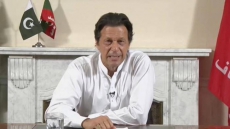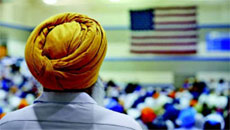Thousands of scientists around the world are working on problems raised by the COVID-19 pandemic. Here is a summary of some recent research from peer-reviewed academic journals and scientific agencies:
---
A team led by a University of British Columbia scientist says it's found a trial drug that closes the door the novel coronavirus uses to enter a cell. In findings published in the journal Cell, researchers describe altering a protein that acts as a receptor for the virus on the surface of a cell. Their paper says the altered protein reduced the presence of the virus by a factor of up to 1,500. The drug, called APN01, is soon to be tested by the European biotech company Apeiron Biologics.
---
Canadian Blood Services has joined an international effort to find out if plasma from those recovering from COVID-19 can be used to keep others from catching it. When people contract a virus, their bodies develop antibodies against it which remain in blood plasma to shield against future infection. Those antibodies could help others with the same virus. Researchers are designing a national trial of the theory. Once it has begun, Canadian Blood Services will contact potential plasma donors. Australia, China, France, Germany, Italy, Singapore, South Korea, the Netherlands, the United Kingdom and the United States are part of the same effort.
---
A survey of United Kingdom residents, the day after a national lockdown was declared to fight the pandemic, found that people reduced their contact with others by an average of 73 per cent. In an unreviewed report, the U.K.'s Centre for Mathematical Modelling of Infectious Disease calculates that should be enough to reduce the average amount of reinfection from existing cases to less than a quarter of what it would have been without social distancing. However, that impact won't show up for a while because of the length of time COVID-19 takes between infection and the onset of symptoms.
---
The University of Pittsburgh says it has created a COVID-19 vaccine that creates antibodies against the virus in mice. In a paper published in EBioMedicine, researchers describe a new way to deliver the drug that they say increases its potency. They used an array of 400 tiny needles in a fingertip-sized patch that goes on like a Band-Aid. The needles, made of sugar and the vaccine components, simply dissolve into the skin. The vaccine generated a surge of antibodies within two weeks. The authors are applying for an investigational new drug approval from the U.S. Food and Drug Administration and hope to start a human trial in the next few months.
---
The Canadian Medical Association Journal says COVID-19 is likely to strain Canada's palliative care providers. It says while end-of-life decision-making is usually shared between doctors and patients, a pandemic could restrict patients' choice of life-prolonging measures or where they will die. It's advising clinicians to stockpile palliative care medications, train staff to meet palliative care needs, work to reduce isolation of patients and ensure all patients are cared for equitably.
---
An article in the International Journal of Biological Sciences outlines research into the use of traditional Chinese medicine in fighting COVID-19. In China, there are currently 50 trials using such medicine against the novel coronavirus. That country's National Health Commission reported that 85 per cent of China's COVID-19 patients had at least some traditional treatments. Previous research done into treatments for SARS, a similar virus, found some potential benefits of combining traditional and western medicine, but a lack of high-quality studies means no firm conclusion can be made.
---
Bob Weber, The Canadian Press

